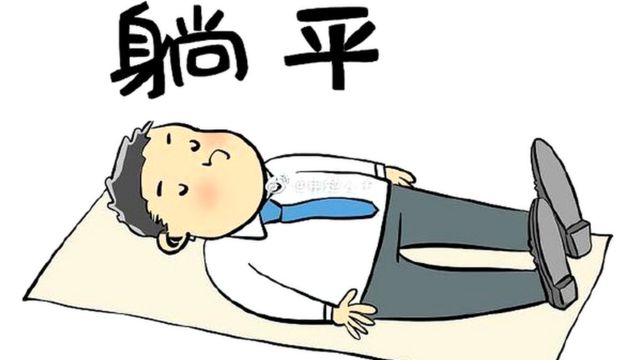What is Going on?
The ‘lying flat’ movement or ‘tang ping’ is a new trend that has been spreading in recent years among young professionals in China.
The term originated from a viral social media post titled ‘Lying Flat is Justice’ on Chinese social media platform by Luo Huazhong, a millennial who found out it’s quite enjoyable to lie flat.
Of course, the post has since been removed because it was considered as an encouragement to stop working hard.
It’s worth specifying that lying flat doesn’t literally mean lying down and not working at all. It means getting out of the rat race and working only the minimum amount you need to survive.
In the end, it’s a philosophy where China’s youth question the current system in China: Why should you work if the system doesn’t work?
Why Are the Young Chinese Lying Flat?
There are several factors in China’s economic and social development that have led the younger generation to question the system. Most of these problems are due to the 3 major economic problems in modern China.
One of the biggest reasons is the exhausting 996 model which means working from 9 AM to 9 PM six days a week. In China, there is intense pressure and societal expectations to succeed and to work long hours.
Increased competition has led to unreasonable working hours. Some work so much that even their little leisure time is not pleasurable due to exhaustion.
Another thing is that salaries haven’t increased enough, and mortgage payments are sky-high. People who have purchased houses are feeling trapped. This has led people to question the point of buying a home at all.
Also, the Chinese population and workforce have and will diminish significantly, partly because of the extreme one-child policy that has caused demographic pressure and forced the younger generation to work harder and longer.
Traditional Chinese values like buying a home, starting a family, and taking care of your elders are facing a challenge. Young people can’t live by these values when they have to work hard 12 hours a day and still can’t afford an apartment.
Older generations find it hard to understand the lying flat mentality and are concerned about the long-term consequences.
What Are the Consequences?
The consequences largely depend on how large the phenomenon will become. The true size of the tang ping movement is largely unknown because of wide censorship. Obviously, the larger the movements become, the larger problems they cause.
It seems that not working yourself to an early grave is a wise choice to make. Unfortunately, the Chinese system is largely built on maximizing your work output.
Doing the bare minimum makes it practically impossible to start a family or buy an apartment, deepening existing issues like low birth rates.
The Chinese officials are obviously worried. China’s government has blocked search results to stop the movement from spreading further.
It’s important to realize that the movement doesn’t mean that the ‘slackers’ skip work entirely. It means that they’re doing the bare minimum in order to survive.
What this means is that the consequences might not be as severe as the CCP might think. Personally, I see it as a form of downshifting.
In an ideal world, the movement would lead to changes in the system itself. Unfortunately, as we have seen, the Chinese way has been to suppress, not to comply with.
There is a danger, though, that the lying flat movement escalates to something else. There’s already a more extreme version of the lying flat movement, which is called the ‘let it rot’ movement.
Differences Between the ‘Let it Rot’ and ‘Lying Flat’ Movements
The line between the terms is not always clear, but there is a difference in intensity between the two.
The ‘let it rot’ movement stands mostly for giving up and simply not caring. It’s about giving up before you even try. The ‘lying flat’ movement usually leads to lowering your standard of living in order to get by with less.
It’s safe to say that while lying flat may not be ideal for China’s economy, it’s not dangerous for individuals.
Letting it rot, on the other hand, is probably bad for both China itself and the Chinese people. Hopelessness usually takes its toll on a person’s well-being, which is bad not only for the individual but for the community also.
Summary
The bottom line is that workers are constantly pressured to overwork. Some of the younger people refuse and try to get by with less, adjusting their lifestyle and working just enough to support it.
One thing to consider is that if more and more people join in, and the phenomenon spreads, there might be something wrong with the system itself.
If the system encourages the young working population to rather give up than try their best, there truly might be something wrong.
It’s worth remembering that the phenomenon is not unique to China. There’s a similar movement, The Great Resignation, going on in the U.S. and Europe also.
Although the working conditions in the Western world aren’t as bad as in China, there are similarities in wage stagflation and the rising cost of living.
Whether the movement will be temporary or not remains unclear. What is clear is the fact that these movements are a symptom, not a disease.




